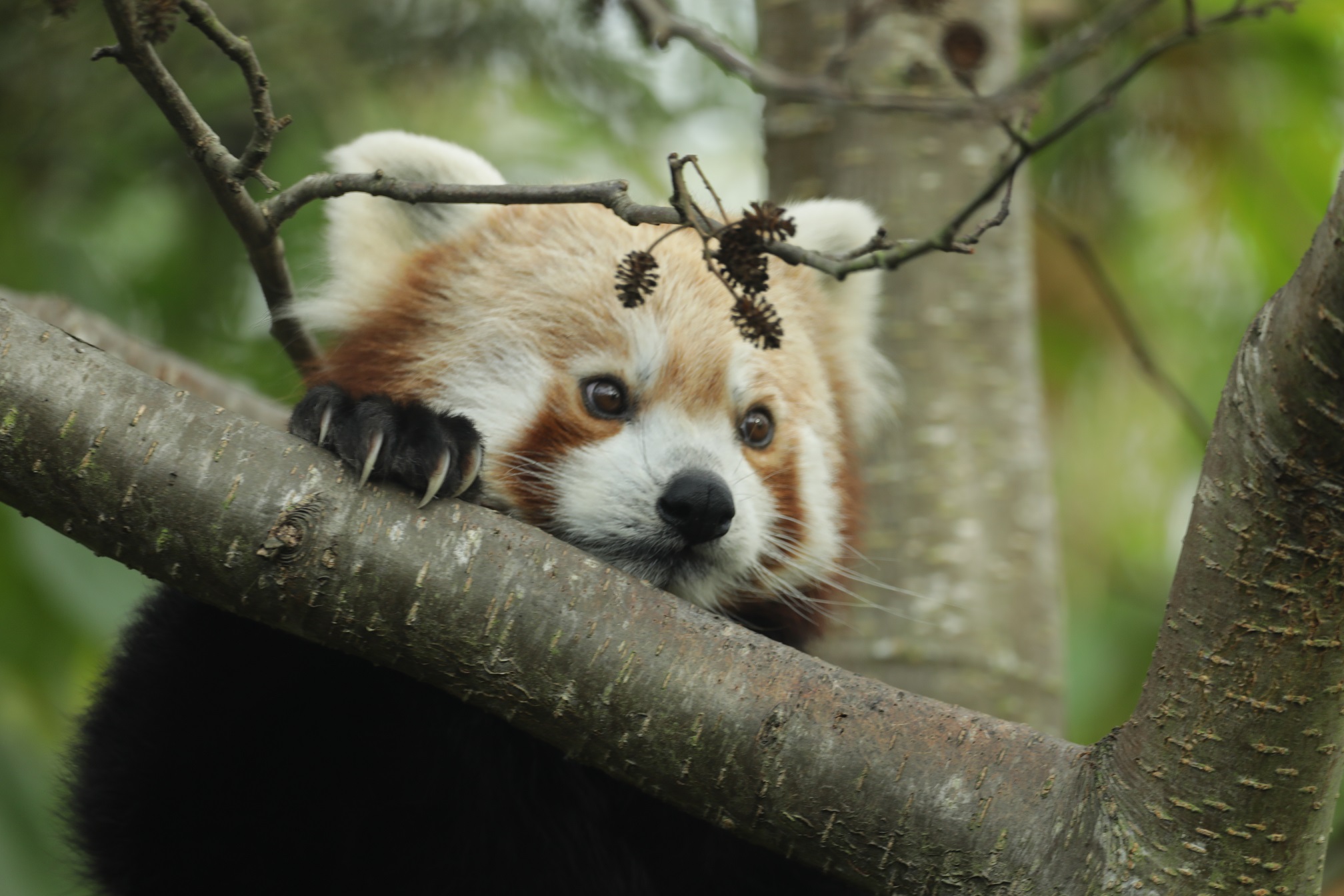Giant armadillo
/giant_armadillo_pantanal.jpg)
International partnerships are crucial to our species conservation work overseas. Long-term programmes run by skilled conservationists living in-country facilitate work with local stakeholders to try and protect the habitats so crucial to so many species. A perfect illustration of this is our long-running partnership on the elusive giant armadillo (Priodontes maximus) with the Wild Animal Conservation Institute (ICAS) in Brazil.
Giant armadillos walk around on huge claws that are also used to dig burrows and tear apart termite mounds. They were almost completely unstudied before Arnaud and his team started their work. Thanks to their efforts, we now know that these animals are important ecosystem engineers whose burrows are used by countless other species for shelter and feeding.
These mysterious animals are threatened by habitat loss across their range in Brazil. Land clearance for agriculture, highways, and record-breaking wildfires are pushing giant armadillos closer to the edge of extinction. Add in poaching, and conflict with beekeepers and giant armadillos are facing a very uncertain future. Some populations have disappeared before the ICAS team could begin studying them.
Thankfully, the ICAS team is hard at work across the Pantanal, Cerrado, and Atlantic Forest in Brazil, gaining as much data about the species as possible. Monitoring giant armadillos with radio tags and camera traps has generated important information about this species and what it needs to survive while ICAS vets conduct pioneering work to understand giant armadillo health.
Meanwhile, work with landowners, businesses, beekeepers, and local communities also ensures that giant armadillos are protected in Brazil. With support from RZSS, the ICAS team train ranch workers in the Pantanal how to fight wildfires and work with beekeepers across the country to produce giant armadillo friendly honey, creating a much brighter future for this enigmatic giant.
Our Partners and Funders
Project type

Large-scale intiatives
The team
Project updates
Date: March 2024
In 2023 ICAS celebrated 150 out of an estimated 200 beekeepers either being or in the process of becoming wildlife-friendly certified in Mato Grosso do Sul. They expanded the project beyond this area and 16 keepers in four other states have also been certified.
Thanks to this certification, their honey is being sold at a higher price (10%) with an increase in sales (20%) according to a study. A new project to breed and donate high-quality queen bees to smaller certified beekeepers as an additional incentive has provided 140 queens to 10 beekeepers.
/armadillos_and_honey.jpg)
Related news
Ways you can support
/icas anteater.jpg)
Become a Conservation Champion
Conservation Champions are helping to save 50 of the world's most endangered species from extinction. Give from £1 a week to £1 a day and join a growing group of caring people like you, committed to saving animals in danger.

Connect your business to nature
You can get involved in our work via corporate partnerships, corporate sponsorships, exclusive volunteering opportunities, in-kind gifts and much more. Being a corporate partner is a unique path to meeting your business and corporate social responsibility needs.

Join RZSS as a member
RZSS membership provides much more than just free entry to Edinburgh Zoo and Highland Wildlife Park. Your membership helps support our charity's conservation work around the world.

/icas.png)


/giant_armadillo_release.jpg)
/giant_armadillo_poo.jpg)
/danilo_giant_armadillo.jpg)
/maria_icas.jpg)
/icas.jpg)
/cerado_armadillo.jpg)
/icas anteater 2.jpg)



